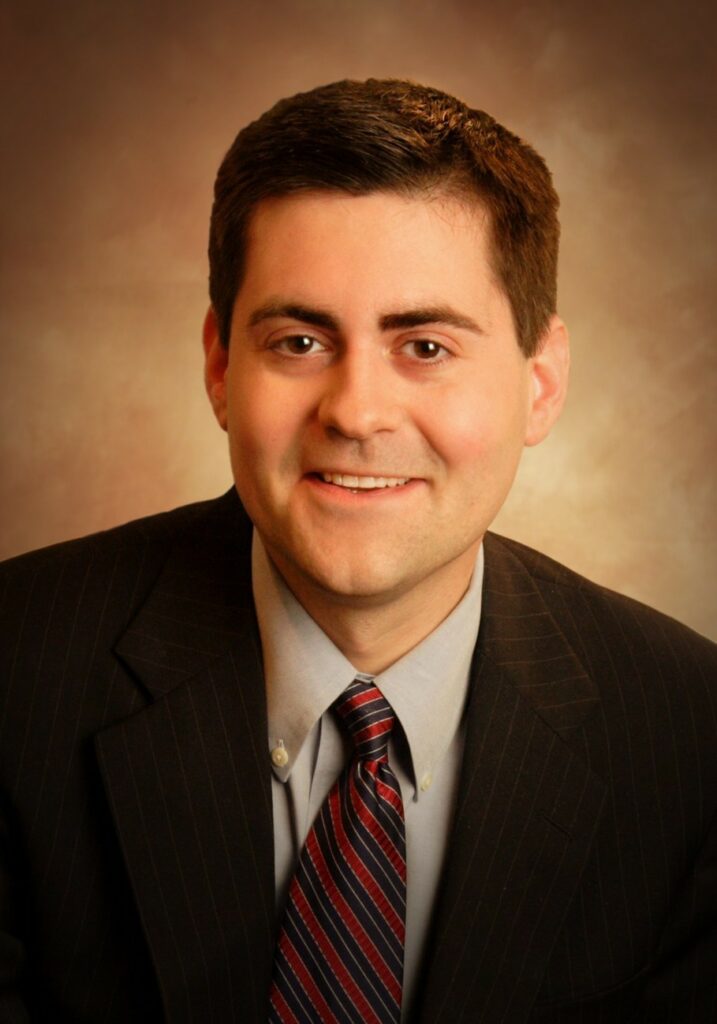There are more than a few evangelicals who are uneasy with Russell Moore’s fixation on “racial reconciliation” in recent weeks. To be fair, that number includes many of us who are disenchanted with what we have surmised to be – by all discernible standards – social progressivism. Whether calling Jesus an “illegal immigrant” in his push for immigration amnesty, his advocacy of environmentalist “creation care,” his ecumenical worship with adherents of other religions like at the Becket Fund’s “multi-faith” gathering, or his ethical compromise to attend gay wedding celebrations but not the wedding itself, Moore clearly has more in common with Sojourner’s Jim Wallis than his predecessor, Richard Land. And his distance from Land, combined with his commendable attempt to lace his progressivism with Scriptural reasoning (however flawed it might be) is what makes Moore immune to criticism from so many Southern Baptists who were happy to see Land go.
In fact, there are a few basic facts surrounding Moore that make him immune to most criticism. First, as stated, he’s not Richard Land. Land out-stayed his welcome at the ERLC and caused much angst in his latter years of tenure. That there would be a long, happy honeymoon with any replacement of Land and Moore is no exception. Secondly, Moore is perceived as theologically Reformed (although a strict “five-pointer” he is not) and is perceived as a protege’ of Dr. Albert Mohler. The sheer influence of Dr. Mohler and their connection has provided enough incentive for most of the “usual critics” to keep their mouths shut altogether. Third, Moore is a stalwart on the issue of abortion (although not so much when he was a Democratic staffer) and believes in the inerrancy of Scripture; in the current climate of the Southern Baptist Convention, those two things are enough to qualify you as a conservative.
However, as demonstrated in the links provided above and by the first year of his service to the ERLC, Moore is not a classical conservative by any means. “Changing tone” has been the repeated description provided by numerous secular press outlets. Many Southern Baptists would prefer to think that the secularists’ perception of a new tone is just a result of Moore’s exemplary handling of the press; Moore has arguably turned the ERLC into the public relations firm of the SBC. Doing so seems to be working. The press often gives glowing reviews of who they call “the SBC’s chief ethicist.” What Southern Baptists need to understand is that Moore isn’t just adding a dose of sugar to our collective Southern Baptist worldview. He’s not just building bridges of understanding by avoiding Land’s habit of firmly inserting a foot in his mouth at every juncture. Southern Baptists need to grasp what the secular media already knows – heck, what the media already is celebrating…Russell Moore is a social liberal.
We saw the moral neutrality in Moore’s post on Ferguson, posted minutes after the grand jury verdict and obviously written before the verdict was given (This is standard fair for public relations professionals but rather bizarre for thoughtful theologians). So neutral, in fact, that the verdict itself and the jury’s findings were irrelevant to the view he was intent on crafting for Southern Baptists. Moore pointed out that whites have a tendency to view a case like Ferguson in its particulars: the facts involved within the individual circumstance. Blacks, Moore asserted, look at situations like Ferguson through a wider spectrum forged through broader historic themes. Moore clearly took the “black” (his argument, not mine) worldview in publishing thoughts that were absolutely detached from the facts of the case but sure to please a secular press predicting a Richard Land-like response. Dwight McKisssic. a black (and charismatic) Southern Baptist pastor who protested in Ferguson (one who refused to show empathy for Officer Wilson and stated “the day he pulled the trigger on an unarmed man is the day the day [Officer Wilson] made choices about his own future”) said that Russell Moore’s post makes “his chest puffed out” to be a Southern Baptist. Among those protesting in Ferguson, Moore’s moral obfuscation earned rave reviews.
And although Moore was not alone in his mad dash to the racial sensitivity finish line, he received some honest criticism from Randy White and others. He angrily lashed out at White’s thoughtful criticism in his December 3 podcast, Questions and Ethics. His tone was harsh, berating, and unyielding. He spoke of blocking “white supremacists” on Twitter, and I have to wonder how many well-meaning and non-racist Southern Baptists he blocked for criticizing what they perceive to be an unhealthy race-baiting for the sake of popular appeal. Would Moore call Randy White or me, possibly, one of those “white supremacists”?
The case of Eric Garner gave Russell Moore a second-wind in his pursuit of the racial sensitivity award. He was going to win this fight, and that’s all there was to it. Moore had not yet won the accolades and applause for which he was destined – the press was championing him, but not the people. Ferguson was too messy, you see. The facts were too hard to ignore (although he somehow managed to ignore them). The public wasn’t quite on his side, what with the image of Michael Brown man-handling a store clerk in a strong-armed robbery fresh in our minds. The Brown family pathologist, whose autopsy findings suggested Brown was shot in the back with his hands in the air, turned out to be a fraud. Eye witness testimony seemed firm. There was nothing in the Brown case, except for the race of Brown, to suggest a race-based killing. Then, the Garner case provided Moore the opportunity to get firmly behind public consensus and bravely lead from behind. In the Garner case, Moore had an incident which would allow him to make a point without all the facts getting in the way.
Read the transcript of Moore’s December 3 podcast. This is clearly a man who feels strongly about racism, isn’t afraid to call a spade a spade, and is willing to speak clearly on why racism is sinful and just plain wrong. Good for him. Racism is wrong. Racism is detestable. Racism is wicked. Racism is sin.
While Moore should be applauded for speaking clearly on the issue of sin, he shouldn’t be applauded for reacting and responding to social issues in presumptive and irresponsible ways.
Moore has made the Garner tragedy about race. To Moore, this is a race talking point. Why? Is it because this is out of a page of the social-progressive handbook? Must it always be about race?
The Garner case angers me as well. It angers me, as a classical liberal, that selling single cigarettes arouses the attention of the police. It angers me as a libertarian to see the term “police force” turn into a verb rather than a noun; it angers me to see the militarization of our nation’s police forces and their willingness to employ force to resolve conflict as a precursor to violence and not as a response to violence. Frankly, the “police are always right” attitude I’ve seen from some in this discussion is annoying. Why was a man choked to death for resisting arrest? That’s just plain awful. Stun-gun that sucker, hog tie him and let’s go home. But at 350 pounds and with heart failure and asthma (as the coroner said), maybe that would have killed him, too. So, frankly, it’s complicated. It’s so complicated, a grand jury of mixed ethnicity might need to see 50 witnesses and 60 exhibits to sort it all out.
But what has this to do with race? Does Russell Moore have some evidence to suggest this was a story about race? Does he have evidence to suggest that because a white police officer choked a black man to death that it was because the man was black? To jump on a bandwagon in absolute and abject ignorance is wrong-headed, but it reaps great rewards in the media. Through these tragedies-turned-opportunities, Russell Moore is quickly becoming the darling of the left-wing media, even receiving accolades in the uber-liberal Huffington Post. Was the grand jury decision equally as race-based as Garner’s death supposedly was? With nearly 40% of the grand jury being comprised by minorities, hearing testimonies from 50 witnesses and seeing 60 exhibits of evidence, does Russell Moore really want to boil this down to race?
Yes. He does. That fits his agenda. That earns him accolades. Calling for reason, calling for caution, calling for discernment, that doesn’t make a 24-hour press cycle revolve around you. It’s not sensational.
When you listen to Russell Moore talk racism he is clear, direct, resolute, solid, unwavering and unyielding. It is sin and he hates it. You can hear that in his voice. Again, good for him.
Why is it when Russell Moore discusses homosexuality all the press can talk about is his “new and softening tone”? It’s hardly a “softening tone” toward racism that Moore is demonstrating. So, why on homosexuality? Do you think that Russell Moore will soon invite racists to an ERLC event to develop a dialogue with them? Do you think that David Duke would be as welcome at his table as Matthew Vines recently was? Would he break bread with white supremacists like he recently did with homosexuals?
No. Racists are dead to him. You hear that in his voice. He’s downright angry at them. That’s a popular bandwagon to be on. That’s a popular stance and not at all a brave one. On homosexuality, though, well…he would attend the reception, after all. Do you think that Russell Moore would refuse to attend a Ku Klux Klan rally, but might attend the reception afterward to share refreshments? I can guarantee you he would not.
It seems that the degree of outrage Russell Moore has for a particular sin directly correlates to the degree of praise he receives in the secular press for making a stand on that particular sin. Racism? He will scream the loudest! Homosexuality? He’ll soften the tone.
Indeed, this is a new tone we are experiencing. Brace yourself, SBC. This is just the beginning of what you can expect from the ERLC.
[Contributed by JD Hall]













